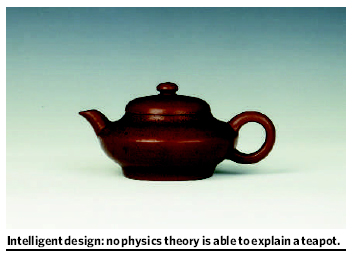George Ellis, physicist and Templeton Prize winner, in today’s Nature has an interesting short article titled “Physics, Complexity, and Causality.” In it he remarks that the physical sciences offer no insight into “intentional design.” The article itself includes the following image and caption:

The question you need to be asking yourself is why is Nature giving such respectful treatment to ID, in effect conceding that ID has focused on a major conceptual problem for science. For more on the significance of Ellis’s article as well as for links to it and related articles, see Paul Nelson’s remarks at IDthefuture (go here).